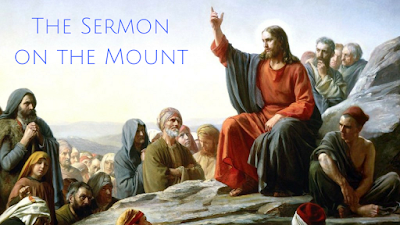The Sermon on the Mount
In July Matt and I will preach five sermons through the Sermon on the Mount. Jesus's Sermon on the Mount is found in chapters 5-7 of Matthew's Gospel. There is so much to say about the Sermon on the Mount, but I don't want to get into all the details here. Rather I want to explain why we will spend the month of July looking at it and raise the question of interpretation.
The Sermon on the Mount is Jesus's most famous sermon. It has always been a primary teaching pastors have passed on to their congregations. In the early church, before the New Testament was organized, pastors at least had some version or copy of the Sermon on the Mount. These pastors would work with their church's to memorize the sermon. Just think about that. Early Christians, without leather bound Bibles, gathering at church to memorize Jesus' teaching. There is no doubt that the practice of memorization - specifically the Sermon on the Mount - formed character and behavior of the early Christians. It also set them apart and made them attractive to those outside the church.
So we will start with that. We are preaching through the Sermon on the Mount because it has always been a primary formative Scripture of the church. For those who claim to follow Christ it makes sense to learn, memorize, and, yes, live out the contents of Jesus's most important sermon. It is our aim that, as we interact with the Sermon on the Mount, we will change in such a way that we will be visibly different and comparably better than those who don't follow Jesus.
As soon as we talk about "living out" the Sermon we jump into the realm of interpretation. There is a wide spectrum for how one understands Jesus's ethical teaching in the Sermon on the Mount. Jesus says some very radical things that stretch our imagination and our comfort zone. There are two extremes. On one hand, some believe the sermon expresses a ethic that is so high it is impossible. Maybe Jesus is demonstrating a elevated ethic for certain people, only for a certain time period, or illustrating our inability to fulfill the law. In this view, the Sermon is not understood as normative Christian behavior (i.e. how Jesus actually expected his followers to live). On the other hand, there are those who believe the sermon should be understood as normative for all Christian behavior at all times. This view would argue that Jesus expected his followers to live out the ethics of the Sermon on the Mount and that it is possible. There are many views in between (see Wikipedia's article).
The famous ethical teaching that highlights this interpretive question is Jesus's teaching on enemy love. He says, "Love your enemies," but what does he really mean? To Matt goes the honor of preaching this famous command on Sunday.



Comments
Post a Comment